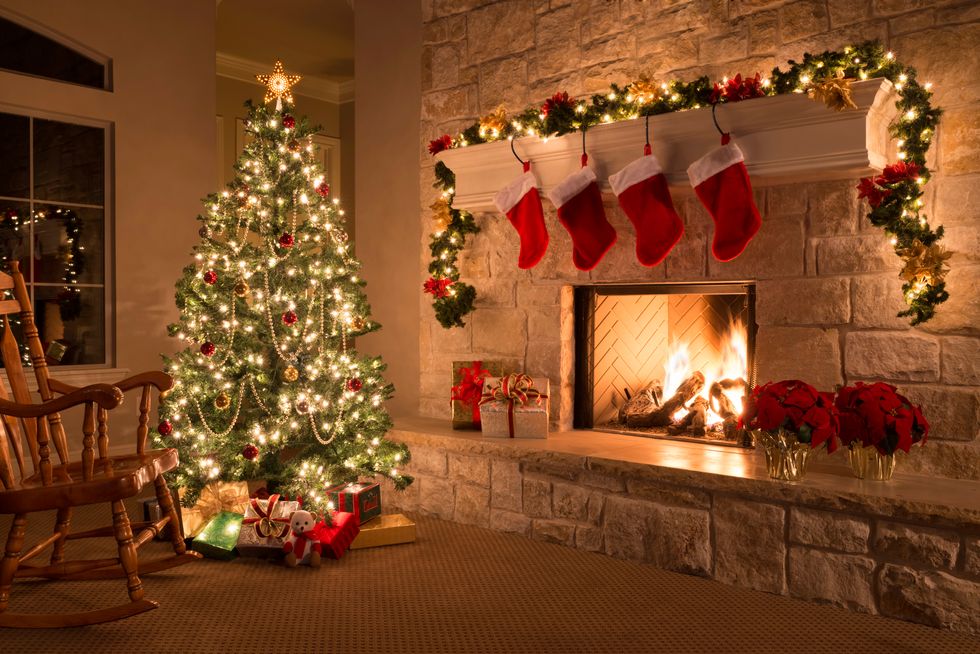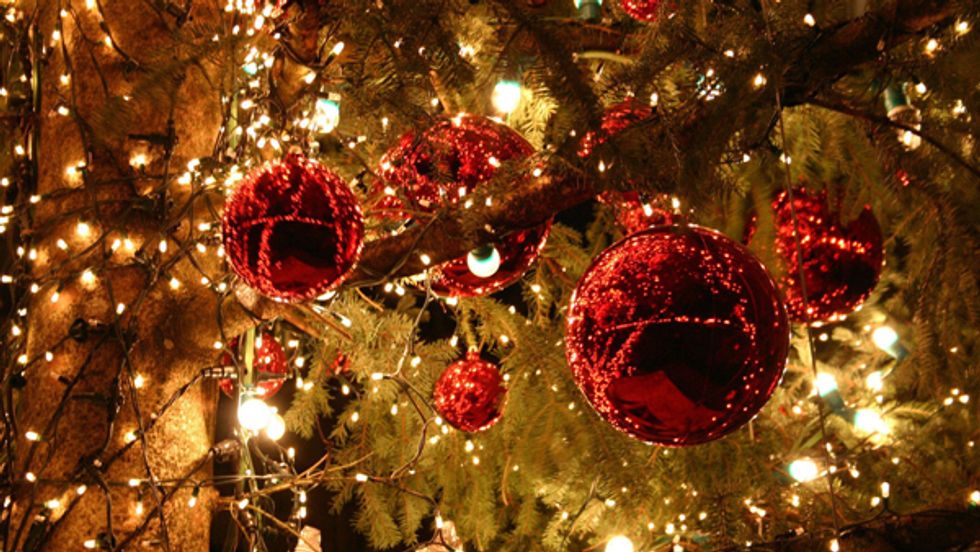Christmas is seen as a day for family, celebration, and of course the birth of our savior (if you swing that way religiously.) Looking back on this time honored tradition can leave some with more questions than answers. It's got a lot of mixed history and traditions from many cultures. It just got bundled up in a nice package that's easy to swallow. I'm sure more than a few people would be reluctant to believe the holiday of Jesus birth is actually filled with rituals commonly associated with Pagans.
The winter season has been celebrated long before Christmas was even a concept. It originated in many different cultures over the years, basing itself around the winter solstice. The Romans are believe to be the first in this line of traditions. The created a holiday called Saturnalia to worship the god Saturn and the end of harvest in farming households. They would hold big celebrations, and give gifts to friends and family to prepare for the winter months ahead of them. Sound familiar?
The second tradition based around the winter solstice is "Yule." Yule was a holiday celebrated by the Germanic, Nordic, and Icelandic people. It quickly spread to many different cultures and religions though. Yule's traditions differed from culture to culture, but the days were essentially the same. They started around the 20th of December and ending anywhere between the 25th and the new year. Yule is still celebrated in many ways today by Wiccans, Pagans, as well as some Germanic people today.
These pagan traditions and celebrations are where many of the origins we have today stem from.
- Christmas Trees: Undoubtedly the most symbolic item of any Christmas is the tree. It's the centerpiece to most family gatherings, and lets not forget it's the place we stick the presents! The first recorded use of a Christmas tree is debated upon, but one thing we do know it that all our ancestors loved greenery being in the home. Evergreens being kept in a home were seen as a way to ward off evil in the winter months. Trees were worshiped in many ancient cultures, so this tradition of cutting down a tree we find beautiful and taking it home isn't new at all. We use to hang apples, nuts, and small treats in place place of the non-edible ornaments we use today.
- Holiday Festivals: I'm sure you can look at any local paper around the holidays and find some type of holiday festival going on in town. Lots of Christmas parades, lighting ceremony's for Christmas trees, and many other things to suit the need for holiday adventure. We see them as a way to get in the holiday spirit, but parties aren't a new concept. The winter solstice marked the end of the harvest season and the time when days would start getting longer. They depended on sunlight to get things done, where as don't have that issue. That being said it makes sense why they would have such a big celebration. When Christianity became popular the catholic church was trying to figure out when Jesus was born (which was historically somewhere around July not December) but they noticed that everyone already celebrated at this time so they declared it to be Jesus birthday and mandated that to be what the festivals were about instead of worshiping nature.
- Caroling 'Wassailing' : While today you can likely find people going door to door singing songs for smiles and a cup of eggnog. Historically this isn't a new tradition, we just changed the name. The Anglo-Saxon term was 'wassailing.' They made a drink of mulled ale, spices, egg, sugar, and curdled cream to share while they went door to door. They would sing songs to neighbors and share a few drinks in merriment which isn't so different from what we do today.
- Giving Gifts: Saturnalia was the first holiday where gifts were present. This wasn't a time where you went out and scrambled to get something personal for every person you know. Instead this was a time where people humbled themselves to the less fortunate. Often the rich would give their slaves the day off with small token to show gratitude for service. They would go door to door in the poor neighborhood handing out small gifts to help them make it through the winter. It was a selfless act of kindness. Today we still give to the less fortunate, but the focus has come to our families and the others close to us. It that really an improvement though? I'll leave that up to you to decide.
- Mistletoe: This was a popular herb according to the Norse, Native American, and Druid people who thought it was sacred. They believed it could ward off thunder and lighting, while it exhibited properties of joy and peace. During Saturnalia Romans would enact fertility rituals under mistletoe. This is where the origin of kissing under the mistletoe is believed to have come from.
In conclusion Christmas is a wonderful time to give gifts, and spread cheer. It's a wild thing to think how traditions get passed on from decade to decade, and that we have kept some traditions alive for century's! This Christmas you can be informed about all the weird origins behind one of our favorite holidays.























